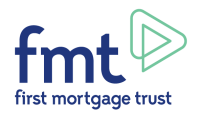Each week, BusinessDesk investments editor Frances Cook answers emails from readers who have questions about money. Below, you'll find her expert advice. Send your own questions to [email protected].
Hi Frances
I'm loving the Cooking the Books podcast!
I'm a 26-year-old teacher in the Waikato. I used to work full-time but I'm doing post-grad studies this year, so I changed to relieving to help with the workload. My salary stays the same; I'm just employed on a day-to-day basis at different schools.
When I was younger, I didn't have much of an education around money and got into a position where I overextended and ended up with about $15,000 worth of debt.
Now I know better. I have much better money habits and I'm trying to get on top of my debt. The only problem: the interest rate for my personal loan is 25%.
The interest is killing me and really holding me back. I tried to go to the bank to get a consolidation loan with lower interest – I wanted to keep paying the same amount, so it got paid back quicker. But because I'm technically a casual worker, they wouldn't accept my loan application.
It's really frustrating – I've never missed a repayment, even when I did my first little stint of relieving a few years ago.
Do you have any advice? Is there anything else I can try?
Kind regards,
R
Hi R
That does sound incredibly frustrating. Twenty-five per cent is an awful lot to be paying on debt, and I’m sure it makes it hard to get ahead on your payments.
Lowering the rate
First up, have you tried any other refinancing options apart from the bank? You want to find a lower rate if you can, because it will really help you pay things off faster.
You could consider transferring it to a credit card with a lower interest rate, or with an introductory 0% interest period.
The Co-operative Bank has one that’s 0% for six months, and 12.95% afterwards. Gem Visa and Q Mastercard also have introductory offers that give you a short period at zero interest.
You can also look to transfer to a credit card with a lower interest rate, such as the American Express Low Rate Credit Card, which costs 2.99% for the first six months, then 12.69% after that.
The trick with these offers, if you qualify, is that you must pay back as much as you can in that interest-free period. You have a brief window to get ahead – use it.
If none of these cards work for your situation, you can find some more options using Canstar’s personal-loan-comparison tool.
It lets you rank different low-interest loans, so that you can go through the list to see if you meet the criteria at different places. Check it out here.
Money mentoring
I would also recommend having a chat to a money mentor at MoneyTalks. You can call them for free at 0800 345 123.
I like them because they’re not trying to sell you anything, and they have vetted, trained people available to help you.
It’s a fantastic free service, run by FinCap, a non-government organisation that supports financial mentoring in New Zealand. Advice on things like setting up a debt-repayment plan is exactly the sort of thing they specialise in.
Whether you can or can’t get a lower interest rate, another thing that will really help you is making any extra payment that you can afford to make.
Each dollar extra that you can pay also wipes off any money that you would have paid in fees and interest. It’s worth far more than just $1.
If you use the debt calculator from the Sorted website, it will show you how much time any extra payment will save you.
This can be really motivating. We all need motivation with big goals like this, so I highly recommend doing what you can to make it real, and show yourself why it’s worth doing.
Another perspective
Christopher Walsh from MoneyHub has done quite a bit of work comparing debt consolidation options, so I contacted him for his thoughts. Here are his tips:
"This is a frustrating situation and one that plagues thousands of New Zealanders. We call it a debt trap, and it's hard to get out of without some serious changes.
"With the CCCFA (Credit Contracts and Consumer Finance Act), it's harder to borrow, so I understand why banks are cutting back on debt-consolidation loans.
"As a background to Frances' readers, $15,000 at 25% is close to $4,000 a year in interest costs alone. I believe lenders like this kind of loan because the interest ticks along, and it's profitable for them while borrowers struggle to pay it off. If you don't pay it, your credit history is damaged, which makes further borrowing more expensive.
"It's a long slog to get debt-free when the interest rates are too high.
"The good news is there are ways to get this debt paid back, even if being a part-time student and relieving teacher makes it feel hard to achieve."
Here are Walsh's suggestions:
- Contact a financial mentor, which is a free service – I also suggest looking at MoneyTalks, which offers dozens of experts in the Waikato and hundreds around New Zealand. They can assess your loan and look to see if you can apply for hardship assistance or even cancel the balance.
- Talk to other lenders. Credit unions are arguably more willing to help than banks. Debt consolidation loans are offered widely – you have an in-demand profession, a great borrowing record, that is, you always repay loans, and you're upskilling. Apply widely – it won't hurt your credit history to get offers.
- Consider getting a low-interest credit card and withdrawing cash to repay some of the debt. Talk with your financial mentor first, as this is highly risky. We currently see interest rates at about 12.95%, around half what you're already paying. However, with a $15,000 loan outstanding, there may be affordability issues, so it might be better to wait until you're back to working full-time. I've heard from MoneyHub users who have withdrawn money on a low-interest credit card, repaid personal loans and then done a balance transfer. However, it's not without its risks, and you would need to be approved for the balance transfer credit card to make it work efficiently. This is not financial advice – I'm merely reporting what others have done in similar situations.
- Sell down and cut down. Every dollar you save, you can put towards your loan. I'd start with a purge. Get items you don't need or use on sale on Facebook Marketplace or Trade Me, and cut back on expenses (see below).
- Side hustle ideas. I appreciate you're full-time with study and work, but is there time to tutor students? Tutoring is lucrative and enjoyable, and if you can commit to a night or two a week, it's quite a good passive income earner.
Walsh says: "This should help you get familiar with your options. From now on, I would suggest the following:
- Download a free budgeting app – you can track your spending to see where all your money goes and make the best choices.
- Eliminate credit card use. Credit cards trap hundreds of thousands of New Zealanders into paying high-interest costs every month. Debit cards (which use money you have in an account, rather than credit) and Eftpos are always the best option.
- Cut down on a bunch of expenses – be brutal and be unforgiving. There are always things you can cut, like subscriptions, phone plans, how you buy groceries, takeaways and entertainment. You can also reprice insurance to save further.
- Start an emergency fund. Perhaps start by adding around $10 a week into a savings account and go up from there. You then have a landing pad should you have a financial emergency and can avoid loans and credit card debt. You're not alone here and you have options. I wish you all the best."
I hope this has given you at least a couple of extra options that you haven’t considered. High-interest debt is a real killer. Once you get this monkey off your back, any sacrifices along the way will feel so worth it.
Send questions to [email protected] if you want to be featured in the column. Emails should be about 200 words, and we won't publish your name. Unfortunately, Frances is not able to respond to every email received, or offer individual financial advice.
Information in this column is general in nature, and should not be taken as individual financial advice. Frances Cook and BusinessDesk are not responsible for any loss a reader may suffer.















